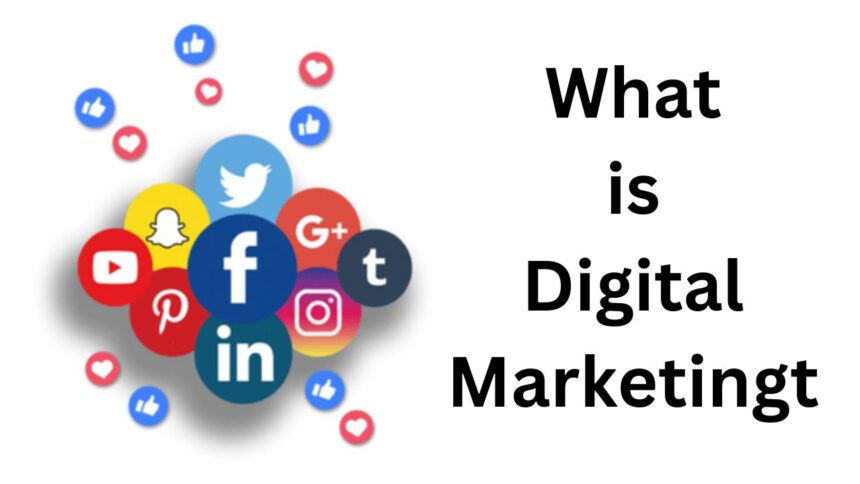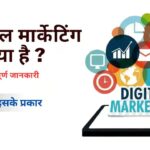Digital marketing is the process of promoting products, services, or brands through digital platforms and channels. It has become one of the most effective ways for businesses to reach their target audience, enhance visibility, and generate revenue. Here’s a detailed overview of digital marketing:
What is Digital Marketing?
Digital marketing refers to all marketing efforts that use the internet and electronic devices. Businesses leverage digital channels such as search engines, social media, email, and websites to connect with current and potential customers.
Types of Digital Marketing
- Search Engine Optimization (SEO)
- Improves website ranking on search engines like Google.
- Uses keywords, quality content, backlinks, and technical SEO practices.
- Content Marketing
- Involves creating and sharing valuable content to attract an audience.
- Examples include blogs, videos, infographics, and eBooks.
- Social Media Marketing (SMM)
- Promotes brands through social media platforms like Facebook, Instagram, LinkedIn, and Twitter.
- Builds brand awareness and customer engagement.
- Pay-Per-Click Advertising (PPC)
- Paid marketing method where businesses pay for each click on their ads.
- Google Ads and social media ads are popular forms of PPC.
- Email Marketing
- Sending promotional emails to a targeted audience.
- Used for product launches, newsletters, or special offers.
- Affiliate Marketing
- Partnering with affiliates to promote products or services in exchange for a commission.
- Influencer Marketing
- Collaborating with influencers who have a strong online presence to promote a brand.
- Video Marketing
- Engaging audiences with video content on platforms like YouTube or social media.
Benefits of Digital Marketing
- Global Reach: Businesses can connect with audiences worldwide.
- Cost-Effective: Lower cost compared to traditional marketing methods.
- Targeted Advertising: Focus on specific demographics and interests.
- Measurable Results: Analytics tools allow tracking of campaign performance.
- Flexibility: Adjust campaigns in real time based on performance.
Key Tools Used in Digital Marketing
- Google Analytics: Tracks website traffic and user behavior.
- SEMrush and Ahrefs: SEO and keyword research tools.
- Hootsuite and Buffer: Social media management platforms.
- Mailchimp: Email marketing automation.
- Canva: Graphic design for creating visuals.
How to Start in Digital Marketing
- Learn the Basics: Understand SEO, social media, and content marketing.
- Build a Website or Blog: Practice applying digital marketing strategies.
- Take Online Courses: Platforms like Coursera, Udemy, and HubSpot offer certifications.
- Practice Regularly: Work on small projects to gain hands-on experience.
- Use Free Tools: Start with free tools like Google Analytics and Canva.
- Stay Updated: Keep up with trends and updates in algorithms.
Future of Digital Marketing
- AI and Automation: AI-powered tools are transforming personalization and targeting.
- Voice Search Optimization: More consumers are using voice assistants like Alexa and Siri.
- Interactive Content: Quizzes, polls, and augmented reality will gain popularity.
- Video and Live Streaming: Video content will remain a dominant form of engagement.
Conclusion
Digital marketing is a dynamic and powerful way to build and grow a business. Whether you’re a small business owner or a marketing professional, understanding and implementing effective digital marketing strategies can lead to tremendous success in the online world.







